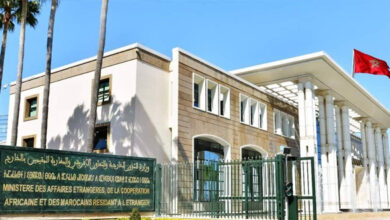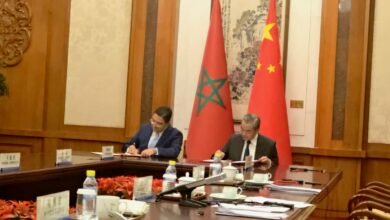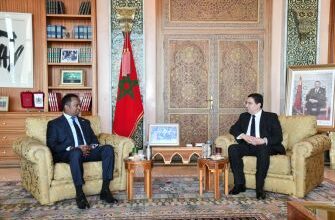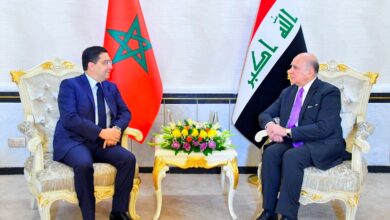Morocco Between Reality and Propaganda: Harmonized Intelligence and a Pioneering Security Model Strengthening Stability
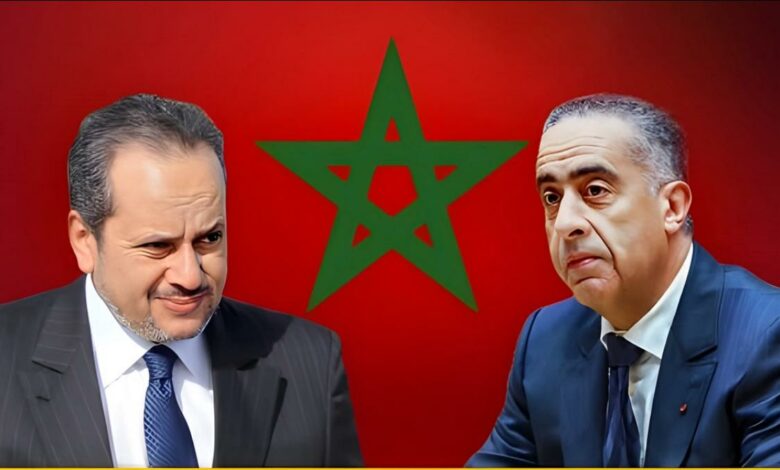
ALDAR/ Iman Alaoui
Hardly a moment passes without certain hostile media outlets recycling fictional narratives about Morocco. The latest of these is the allegation of an alleged “internal conflict” between Abdellatif Hammouchi, Director General of National Security and the Directorate General of Territorial Surveillance (DGST), and Mohamed Yassine Mansouri, Director General of Studies and Documentation (DGED). This attempt seeks to portray state institutions as divided over the royal succession. Yet such claims quickly collapse when faced with documented facts and field data, which confirm an unprecedented level of cohesion among Morocco’s security agencies.
The Kingdom’s intelligence apparatus—whether civilian or military, domestic or foreign—operates in full complementarity under a national strategy led by His Majesty King Mohammed VI. Coordination meetings between DGST and DGED are no longer occasional initiatives but have become a permanent practice aimed at countering terrorist threats, organized crime, irregular migration, and safeguarding cybersecurity. This harmony has made Morocco a trusted partner for European and American security agencies, particularly in intelligence sharing on extremist groups.
The numbers highlight the scale of these achievements. Since the creation of the Central Bureau of Judicial Investigations (BCIJ) in 2015, nearly 91 terrorist cells have been dismantled, most of them linked to ISIS, and more than 1,400 suspects have been brought before the courts. Since the early 2000s, over 500 terrorist plots have been foiled and 215 cells dismantled, according to reports from the Moroccan Ministry of Interior. These operations have extended beyond Morocco’s borders: Moroccan intelligence contributed to thwarting major attacks in France, Belgium, and Spain, as acknowledged by European Union reports and various Western security agencies.
Morocco has also invested in digital technologies to track terrorist activity online, successfully infiltrating closed forums and monitoring online recruitment campaigns. Specialized units under DGST and BCIJ managed to disrupt extremist propaganda operations and uncover cells before they reached execution stage. This digital approach positioned Morocco as a frontrunner in countering unconventional threats increasingly rooted in cyberspace rather than on the ground.
But the strength of Morocco’s model also lies in its human rights dimension. The Kingdom ensures that its security operations remain bound by legal frameworks: cases are brought before ordinary courts and trials are conducted publicly in accordance with established standards. Innovative programs like Moussalaha (Reconciliation), launched inside prisons, help reintegrate individuals convicted of terrorism, making Morocco one of the few countries to successfully combine security effectiveness with respect for individual rights. The National Council for Human Rights also plays a supervisory role, further reinforcing the legitimacy of this approach.
This balance between security and rights has earned Morocco broad international recognition. The European Union has described Rabat as an “indispensable strategic partner,” while the U.S. Department of State praised Morocco as “a model in the comprehensive approach to counterterrorism.” Even the CIA highlighted its close partnership with Moroccan counterparts, noting that their intelligence had helped save lives in Europe and the United States. At the United Nations, Morocco has been described as a “key actor” in protecting the Sahel region from the spread of terrorist organizations.
Ultimately, the media campaigns targeting Morocco are nothing more than a reflection of its success. The more its indicators of security, political, and legal stability rise, the more the propaganda intensifies. The equation is clear: Morocco is attacked because it succeeds where others fail. It succeeds in protecting its borders from terrorist threats, in building cohesive security institutions, in balancing security with freedom, and in strengthening its position as a reliable partner on the international stage. As for the voices promoting the illusion of “internal conflicts,” they remain captive to their propagandist discourse, while Morocco steadily continues its path as a nation of stability and a pillar of security in a turbulent region.

